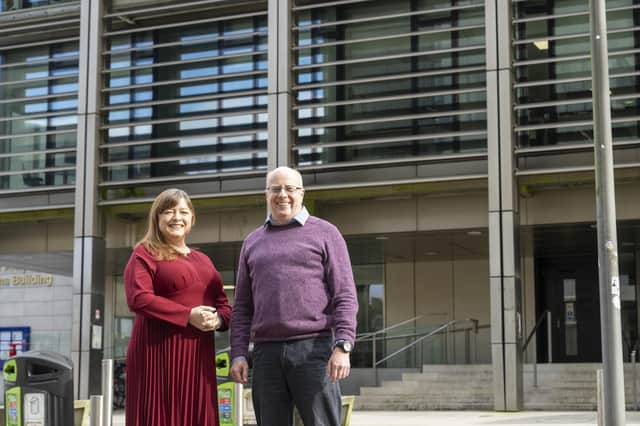University of Glasgow looks to strengthen industry ties with new computing science innovation lab


The University of Glasgow has pushed the button on a new computing innovation lab as it looks to strengthen the ties between academia and industry.
The Glasgow Computing Science Innovation Lab (GLACSIL) was set to be officially launched today with an event at the university’s Clarice Pears Building. It will bring together researchers from the institution’s school of computing science with representatives from some of the six companies which have already formed close collaborative links with researchers from the faculty through jointly funded research. Those firms are: Bell Nokia Labs, BT Research, Thales, Moodagent, International Data Flows and DotPhoton.
Advertisement
Hide AdAdvertisement
Hide AdThe new lab’s aim is to build on “productive partnerships” already established with companies, from small and medium-sized enterprises (SMEs) to multinationals across a wide range of sectors. Together, researchers from the university and key staff from partner organisations will work more closely to spark new research collaborations, benefit from joint funding opportunities and develop new commercial products.
Jill Dykes, of the University of Glasgow and GLACSIL’s co-director, said: “The University of Glasgow has always been at the cutting edge of computing science. We were the first Scottish university to establish a computing science department, and the first in Scotland to install an electronic computer back in 1957. We have been working closely with partners in industry to help realise the real-world potential of computing science research ever since, while generating world-class socioeconomic impact.
“Universities are unique spaces where researchers have the freedom to explore ideas that they find interesting and push forward new technological developments. GLACSIL partners will have the inside track on learning about those breakthroughs. Glasgow’s school of computing science innovates across a wide range of domains: from AI, computer vision, social robotics, and healthcare technologies, to algorithm development, cyber-security, systems and communications, and programming languages.”
A key initial activity for the lab will be sharing the “innovative research culture” of the school of computing science with member companies. Those members will be able to participate in research seminars, workshops, networking events and other activities to debate, discuss and solve key research questions for academia and industry.
Comments
Want to join the conversation? Please or to comment on this article.